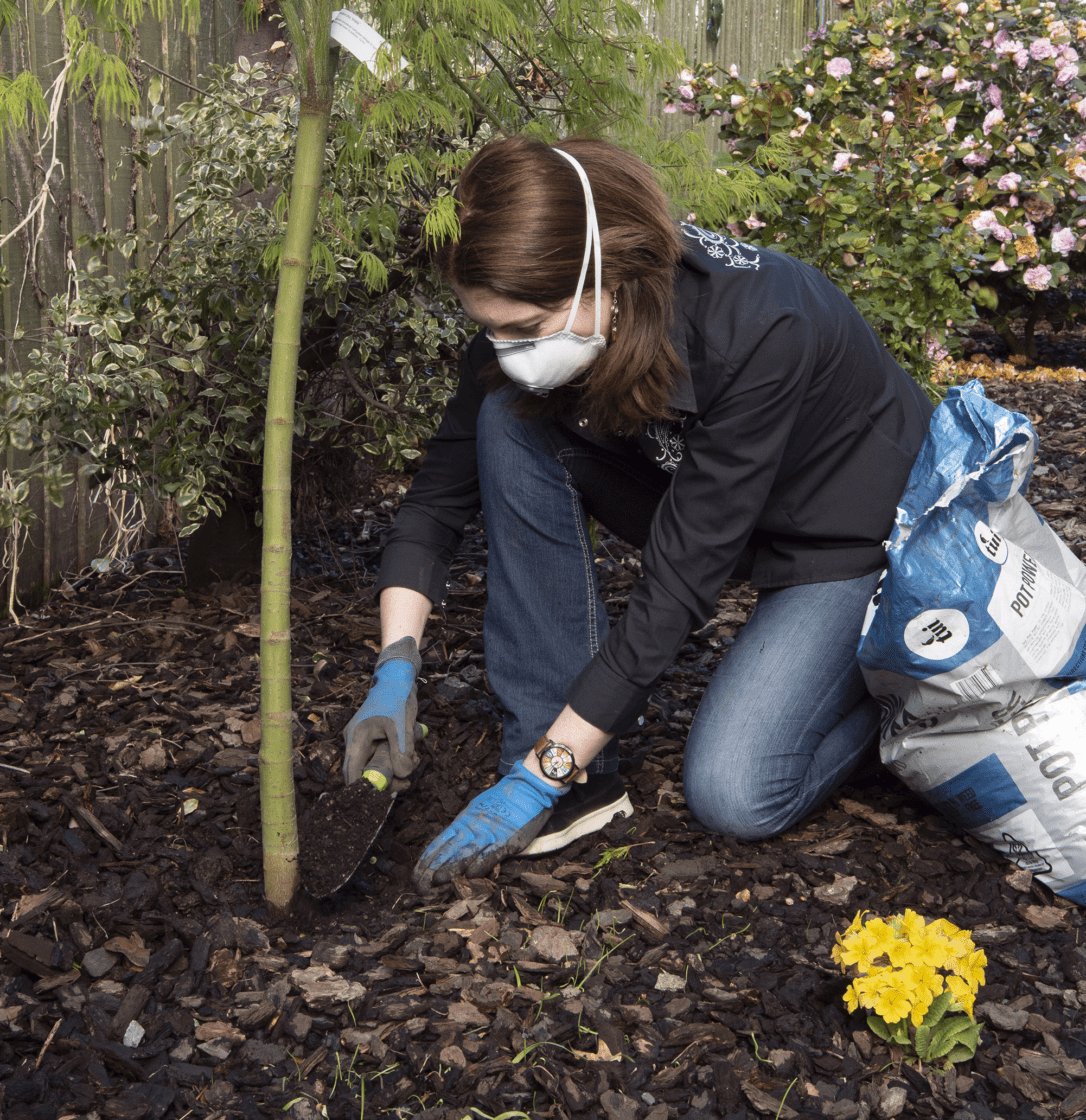Thursday 22 October 2020Media release3 minutes to read
THIS IS AN ARCHIVED PAGE. The advice and information contained in this page may not be current and it should only be used for historical reference purposes.

With labour weekend upon us, Cantabrians are being encouraged to protect themselves against legionnaires' this planting season
Spring is the perfect time to be out in the garden. It’s also the perfect time for enthusiastic gardeners to risk unwittingly releasing Legionnaires’ disease from the depths of their potting mix and compost.
With 23 cases of the disease already confirmed in the region this year, gardeners are being urged to take care with potting mix and compost.
Last year there were 39 hospitalisations from Legionnaires’ in Canterbury.
Canterbury Medical Officer of Health Dr Ramon Pink says Legionnaires’ disease is a form of pneumonia.
“It’s caused by the Legionella bacteria that live in moist organic material and people can catch the disease by inhaling airborne droplets or particles containing the bacteria.
“Gardeners are at particularly high risk of catching Legionnaires' disease as the bacteria thrive in bags of potting mix and compost,” says Dr Pink.
In Canterbury there is typically a spike in cases in early November that can be attributed to the increased gardening activity over Labour weekend, and with a promising forecast this Labour weekend now is the time for people to take the necessary steps to avoid catching the disease.
Dr Pink says there are five simple actions gardeners should take to avoid getting legionnaires’:
- Wear a well-fitting disposable face mask and gloves before you begin gardening.
- Open potting mix or compost bags carefully by using scissors to cut off the top.
- Reduce dust by spraying some water into the bag.
- Work with potting mix or compost in a well-ventilated outdoor area.
- Wash your hands thoroughly after handling potting mix or compost and before touching your face or removing the mask.
“Legionnaires’ is a very serious illness and following these simple steps can be lifesaving,” says Dr Pink.
The illness may be mild but can sometimes be fatal. It is more common in older people, particularly if they smoke, have poor immunity or a chronic illness. However, sometimes even healthy young people have died from legionella pneumonia.
Symptoms can include dry coughing, high fever, chills, shortness of breath, muscle aches, headaches and diarrhoea. If you have these symptoms, you should contact your general practice team right away for advice and let them know you if have been handling potting mix or compost.
For more information on Legionnaires’, visit: https://www.healthinfo.org.nz/index.htm?Legionnaires-disease-legionellosis.htm
ENDS
Tags Legionnaires' diseasePublic health
Related topics
Public Health
Back to Health News

